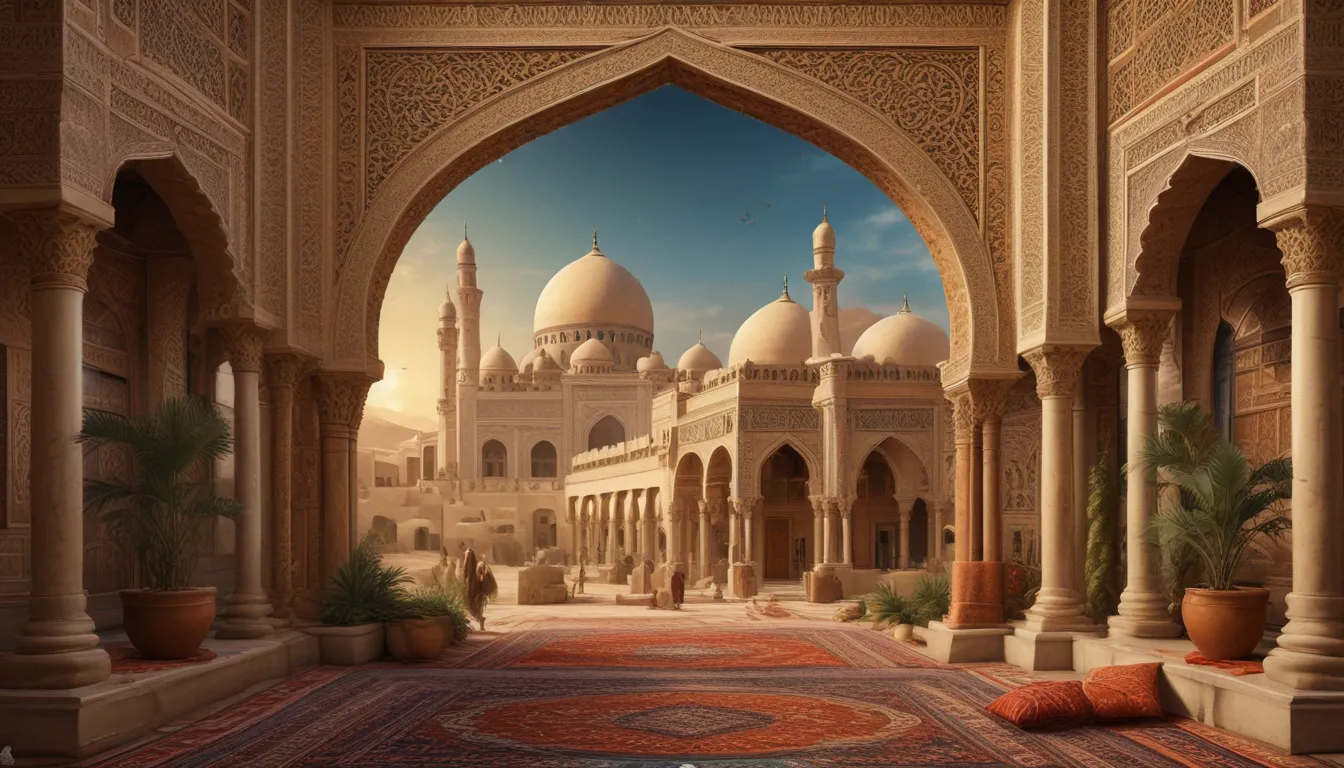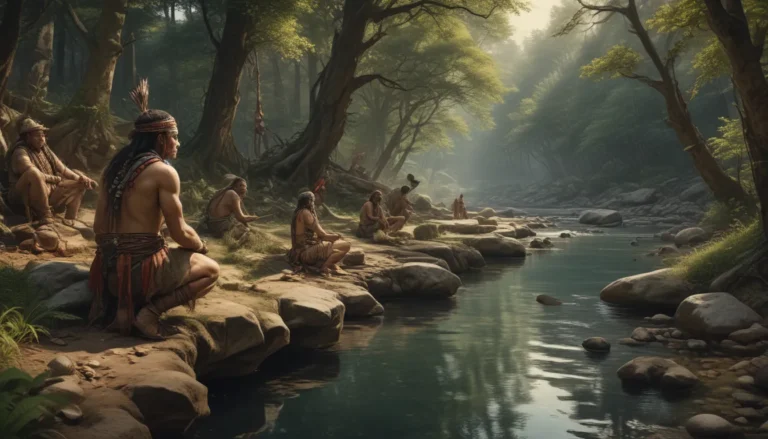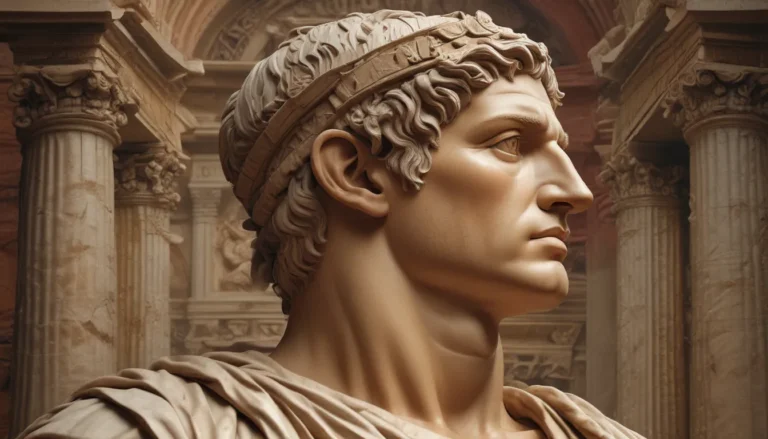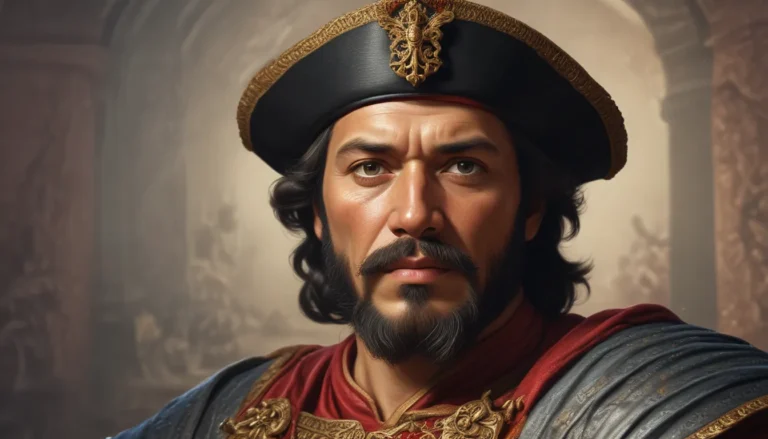The images in our articles may not match the content exactly. They are used to grab your attention, not to show the exact details in the text. The images complement the text but do not replace it.
Welcome to a journey through the captivating realms of Middle Eastern history, a tapestry woven with threads of cultural richness, political intrigue, and technological advancements spanning millennia. As the cradle of civilization, this region has been a melting pot of empires rising and falling, the birthplace of major religions, and a pivotal crossroads for ancient trade routes connecting diverse corners of the world. Delve into the complexities and significance of Middle Eastern history with these 18 intriguing facts that shed light on the enduring legacy of this remarkable region.
Unveiling the Cradle of Civilization
Middle Eastern history unfolds as a riveting saga often referred to as the “Cradle of Civilization,” encompassing countries like Egypt, Iran, Iraq, Israel, Jordan, Lebanon, Saudi Arabia, and Syria. This region has been instrumental in shaping major religions, empires, and cultural advancements that echo through the corridors of time.
- Mesopotamia, situated in modern-day Iraq, stands as the world’s first civilization, with the Sumerians pioneering cuneiform, the earliest known form of writing, around 3400 BCE.
- The Code of Hammurabi, a cornerstone in ancient legal systems, emerged in ancient Babylon in Mesopotamia around 1754 BCE, offering insights into early governance structures.
Nurturing Major Religions
The Middle East has served as a cradle for major world religions, fostering their growth and dissemination across continents.
- Judaism, dating back over 3500 years, finds its roots in the Middle East, with Abraham revered as the father of this ancient monotheistic faith.
- Christianity, branching off from Judaism in the 1st century CE, traces its origins to Jerusalem, with Jesus of Nazareth emerging as its central figure.
- Islam, founded by the Prophet Muhammad in the 7th century CE in Mecca (modern-day Saudi Arabia), swiftly spread its teachings across the Middle East and beyond.
Legacy of Empires
Numerous empires have flourished and declined in the Middle East, each imprinting a distinctive mark on the annals of history.
- The Egyptian Empire, renowned for architectural marvels like the Pyramids of Giza, blossomed around 3100 BCE, standing as one of the world’s earliest and enduring civilizations.
- The Persian Empire, inaugurated by Cyrus the Great in the 6th century BCE, distinguished itself with innovative administrative systems and a culture that respected diverse subject populations.
- The Ottoman Empire, which rose in 1299 and reigned for over 600 years across Southeast Europe, Western Asia, and North Africa, reshaped the modern Middle East post-World War I.
Contributions to Culture and Science
The Middle East stands as a crucible of cultural and scientific advancements that have reverberated globally.
- The Phoenicians, dwelling in what is now Lebanon, bestowed the modern alphabet upon the world, an enduring legacy of their civilization.
- Algebra owes its origins to Persian mathematician Al-Khwarizmi, who laid the groundwork for modern algebraic concepts in the 9th century.
- Scholars in the Middle East during the Islamic Golden Age significantly advanced the concept of zero, a pivotal development in the realms of mathematics and science.
Narratives of Modern Conflicts and Historical Legacies
The tapestry of Middle Eastern history weaves modern conflicts with deep-rooted historical legacies.
- The Sykes-Picot Agreement of 1916, a covert pact between France and Britain, drew arbitrary borders in the Middle East, fueling tensions and conflicts stemming from ethnic and sectarian divisions.
- The Israeli-Palestinian conflict, incubated in the late 19th and early 20th centuries, embodies nationalist movements from both Jewish and Arab perspectives, each claiming ancestral territories.
- The Iran-Iraq War (1980-1988), one of the longest conventional wars in the 20th century, erupted from territorial disputes and apprehensions of Shia unrest within Iraq’s Sunni-dominated government.
Environmental Challenges and Historic Agricultural Practices
The Middle East grapples with environmental hurdles accentuated by historical agricultural customs.
- Water scarcity remains a pressing concern in the arid Middle East, prompting the development of ancient irrigation systems that persist to this day.
- The once-bountiful Fertile Crescent, spanning regions of Iraq, Syria, Lebanon, Jordan, Israel, and Egypt, has suffered diminished productivity due to overuse and climate shifts.
- Desertification, hastened by overgrazing, deforestation, and faulty irrigation, poses a grave threat to arable land once teeming with life.
- The shrinking Dead Sea reflects alarming rates of desiccation, attributed to water diversion and mineral extraction, underscoring its historical value for health benefits and ancient human habitation.
Embracing Middle Eastern Lore
As we unravel the intricate tapestry of Middle Eastern history, stories of ancient civilizations, grand empires, and profound religions unfurl before us. Each fact shared illuminates a facet of this region’s complexity, from Mesopotamia’s cradle of civilization to the trade routes crisscrossing the Arabian Peninsula. Let us embrace this newfound understanding, honoring the depth and diversity of Middle Eastern history. These narratives remind us of the interconnectedness of humanity’s stories, beckoning us to explore beyond our horizons and embrace the rich heritage that has shaped our shared global identity.
Partnering in Knowledge Sharing
We are devoted to delivering authentic and compelling content to enrich your learning experience. Every fact you encounter is contributed by individuals like you, offering a wealth of diverse perspectives and information. Our team of dedicated editors meticulously reviews each submission to uphold the highest standards of accuracy and reliability. Trust in our commitment to quality and authenticity as we journey together through the realms of knowledge, exploration, and enlightenment.






